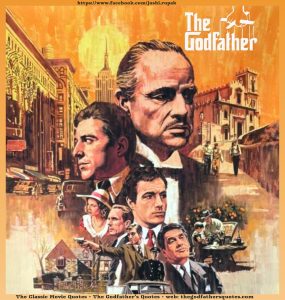
The Godfather is often seen by today’s young generation as an old mafia movie, but in reality it is one of the most important films ever made, offering deep lessons about family, power, migration, loyalty and the consequences of one’s choices. Released in 1972 and directed by Francis Ford Coppola, the film is based on Mario Puzo’s bestselling novel and stars Marlon Brando as Vito Corleone and Al Pacino as Michael Corleone. Set mainly in New York during the 1940s and 1950s, the story follows the powerful Corleone family and their struggle to maintain influence, honour and survival in a dangerous world of organised crime. The film won multiple Academy Awards, including Best Picture, Best Actor and Best Adapted Screenplay, and its success led to two sequels The Godfather Part II (1974), which presents parallel stories of young Vito Corleone’s rise and Michael Corleone’s increasing power, and The Godfather Part III (1990), which shows an older Michael attempting to legitimise the family business and escape his violent past. Together, these three films form the iconic Godfather trilogy, widely regarded as one of the greatest achievements in cinema history.
The story begins at the wedding of Connie Corleone, where people come to Vito Corleone seeking help and justice. Vito is a respected mafia leader who believes in honour, negotiation and family loyalty, and although he is involved in criminal activity, he operates under a strict moral code. His youngest son, Michael Corleone, is different from the rest of the family. A war hero with strong values, he wants to live an honest life outside the mafia world. However, when rival criminals attempt to murder Vito after he refuses to join the dangerous drug business, Michael is forced to step in, protect his family and take actions that change the course of his life forever. What begins as a desire to defend his father slowly turns into a transformation as Michael becomes deeply involved in the family business, eventually rising as the new Godfather more strategic, cold and ruthless than anyone expected. The Godfather may appear to be a film about gangsters, but at its core it is a powerful human story about how choices shape identity, how pressure affects morality and how love for family can pull a person toward paths they never intended to take.
For young people today, The Godfather remains relevant because its themes are timeless. It speaks to the modern struggle between family expectations and personal dreams something many young adults understand. Michael does not want to join the mafia, yet his sense of duty, love and pressure from circumstances push him into a world he never chose. The film also teaches about the dark side of power. Michael’s rise gives him control, respect and influence, but it also isolates him and damages his relationships, showing that power gained through fear and violence carries a heavy emotional cost. The Godfather also reflects the real experiences of migrant families. The Corleones, as Italian immigrants, face discrimination, cultural conflict and the pressure to survive in an unfamiliar society. This mirrors the experiences of many migrant communities today who feel caught between tradition and a rapidly changing world.
Another important message for young people is the difference between glamorous portrayal and harsh reality. Short clips, memes and social media quotes often make the mafia lifestyle seem stylish suits, cigars, famous lines and dramatic scenes – but the full film reveals the truth: violence destroys families, trust and happiness. The Godfather does not glorify crime; it exposes its emotional, psychological and moral consequences. Michael’s journey shows how a good person can slowly become someone unrecognisable through repeated decisions made out of anger, fear or pressure. The more powerful Michael becomes, the more he loses his peace, love and humanity, sending a clear message that success without ethics leads to emptiness.
The Godfather is also a masterclass in filmmaking, acting and storytelling. Marlon Brando’s portrayal of Vito Corleone and Al Pacino’s performance as Michael are considered among the greatest in cinema history. Their subtle expressions, quiet conversations and emotional depth create a storytelling style very different from today’s fast-paced films. For young viewers used to TikTok, Instagram Reels and quick-cut Marvel movies, the film may feel slow at first. But its slower pace is intentional, allowing the audience to understand the characters’ emotions, silence and moral struggles. Watching The Godfather is like reading a great novel-rich, detailed and emotionally layered.
Understanding The Godfather also helps young people appreciate many modern films and shows, as it has influenced decades of storytelling in crime dramas, gangster films, video games and popular culture. The famous scenes, quotes and structure have inspired everything from Breaking Bad to Peaky Blinders to The Sopranos. Watching it helps young viewers recognise the origins of many modern narratives about power, family and corruption.
In the end, The Godfather is not just a movie it is a study of human nature. It shows that every decision has consequences, that blind loyalty can be dangerous, that communication matters and that ambition without morality leads to emotional destruction. For today’s young generation, the film offers valuable insight into identity, ethics, relationships and the pressures of adulthood. Even after more than fifty years, its lessons remain powerful, and its story continues to inspire new audiences around the world. If watched with an open mind, The Godfather becomes more than a classic film; it becomes a meaningful reflection on life, family and the choices that define us.




